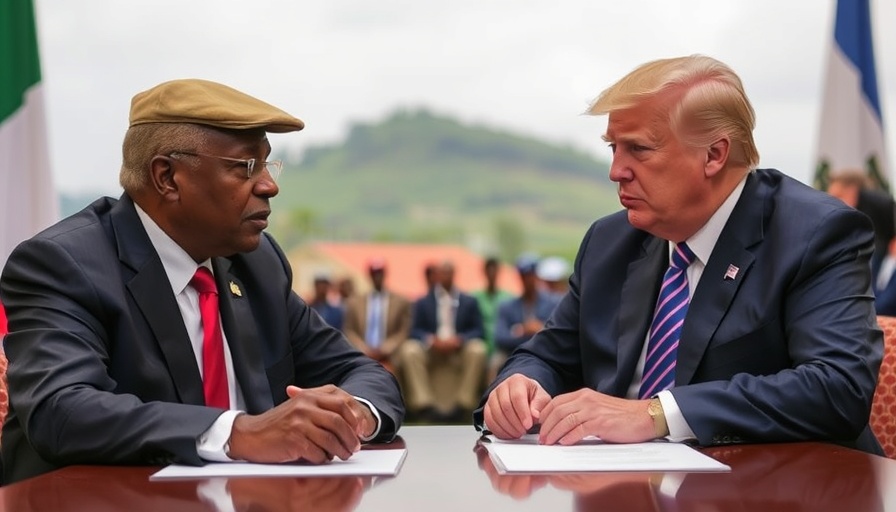
Understanding the Recent Congo-Rwanda Peace Proposal
In a significant development for regional stability, the governments of the Democratic Republic of the Congo (DRC) and Rwanda have jointly submitted a draft peace proposal intended to address ongoing tensions and conflicts in the region. This development comes amidst a complex interplay of geopolitical factors that affect not only local stability but also have broader implications for African governance and international diplomatic relations.
Impact on African Politics and Governance
This peace initiative highlights the increasing importance of diplomatic engagement in managing conflicts in Africa. The DRC and Rwanda have a long history of enmity, often intertwined with issues of territorial security, resource control, and ethnic tensions. As global attention focuses on Africa’s potential in the geopolitical landscape, the ability to navigate these intricate relationships will play a crucial role in shaping future governance models across the continent.
Africa’s Role in Global Trade Dynamics
With the global economy recovering from the pandemic, the resolution of conflicts like those between Congo and Rwanda is vital for enhancing Africa’s attractiveness to foreign investors. Stable relations will not only bolster trade between these nations but will also encourage investments from global powers eager to tap into Africa’s burgeoning market. Analysts argue that the resolution of such base tensions can significantly strengthen Africa's stance in global trade negotiations and partnerships.
Future Predictions for East African Geopolitics
Observers predict that if successfully implemented, the peace proposal could herald a new era of cooperation among East African countries, potentially paving the way for enhanced regional trade agreements and alliances. This could significantly impact global trade routes, as East Africa increasingly positions itself as a pivotal point for international commerce.
The Need for Continued Diplomatic Engagement
Stakeholders, including policymakers and think tanks, emphasize the necessity of sustained diplomatic efforts to prevent a resurgence of conflicts. Collaborative initiatives such as this peace proposal embody the potential for Africa to redefine its future through cooperative governance. Engaging with international partners will facilitate knowledge sharing and best practices in conflict resolution, further strengthening Africa's global position.
For investors and leaders observing African socio-economic trends, understanding the nuances of these diplomatic advancements becomes crucial. Making informed decisions in this evolving landscape can create both opportunities and challenges in navigating Africa's dynamic markets.
 Add Row
Add Row  Add
Add 


 Add Row
Add Row  Add
Add 

Write A Comment